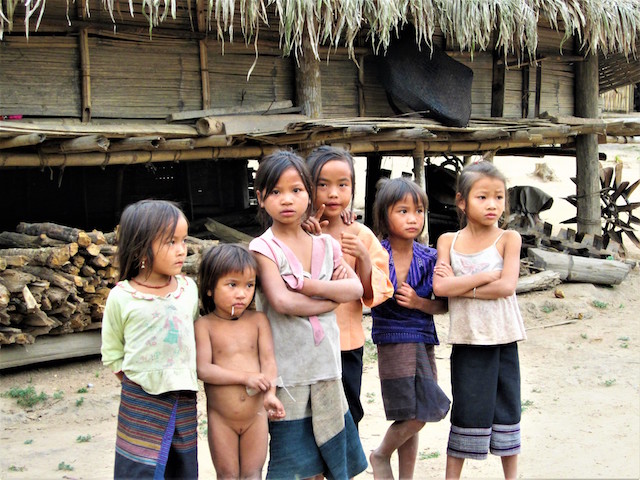“Writing is not just writing. It is also having a relationship with other writers.” ~ Natalie Goldberg
~
I’m crammed into the second row of seats of an overstuffed minivan, my face pressed against the window.
We hit another bump along the potholed road, and my arms automatically tense up to keep my backpack on my lap and not bang my head on the ceiling. The driver brakes abruptly and tells us we have a 10-minute break.
A sigh of relief sweeps through the minivan as the van door slides open and passengers, luggage, and livestock unfurl and exit the vehicle for a brief repose.
We can’t be more than an hour from our destination, so I stay where I am in the van and take the opportunity to catch up on some journaling I’ve been meaning to do to document my travels.
I look out the dusty window onto the dry, washed out rice fields. There’s a small forest of banana trees on the other side of the road, and it looks like there might be a small village somewhere through the plush, green leaves.
It’s pretty standard landscape for rural Laos.
After a few minutes of scrawling, I squint through the smoggy windows again and see a small group of Laotian children approaching some of the newly un-pretzeled travelers who’ve taken the chance to stretch their legs.
The kids advance a bit cautiously, but are eager to interact with these funnily dressed foreigners.
Some of the travelers give the kids part of their chocolate bars and some cookies. Another hands over a few kip bills.
The kids eagerly accept all these tokens, but keep pointing to the back of one guy’s backpack. Puzzled, he takes off the backpack and pulls out another small pack of cookies and offers it to the children. But they brush it away and keep pointing. Bik, bik.
There is blue, slightly cracked ball-point pen sticking out of one of the back pockets.
They want the guy’s pen.
Realizing this, he hands over the old pen with the cap missing. He even digs down to the bottom of his bag and scrounges in some pockets, managing to find a couple more. He hands those over too.
The least valuable of his tokens, he wouldn’t have even thought to offer them.
The kids fall excitedly on their new treasures—cookies, candy, and coins—chatting and laughing, bumping shoulders with each other, and comparing loot as they amble off back through the trees. But the pens seem to be the gold of their bounty.
I scramble out of the bus after their retreating backs.
“Wait!” I call out, tearing a few sheets of paper from the end of my journal and handing them over to them.
Because every writer needs a canvas.
This happened several times throughout my travels in rural Southeast Asia, and each time I marvel how the thing these kids prize most is not sweets or coins, but pens.
They’re something so common, so banal that we, like my fellow traveler, wouldn’t even think to offer them. We attribute them so little value.
Here in the West, we have countless privileges and opportunities that those living in less developed countries may not. But perhaps the most valuable one is something as simple as a pen. And paper.
A medium to express, record, and communicate.
Because a pen is a voice.
We often take our ability to write for granted.
These past few months, I’ve been fortunate to have more than the privilege of being able to write, of being able to scrawl my disjointed thoughts in a notebook, of being able to spew out my latest musings in an email to some poor friend or family member. You see, the last three months, I’ve had the opportunity of doing an apprenticeship with elephant journal on how to become a better writer.
We dug deep in to the craft of writing and learned things like how to deal with writer’s block, how to develop healthy writing habits, and what to do when we weren’t feeling inspired to write.
We explored social media and how to communicate on a digital canvas. We learned how to use our modern day pen and paper: Facebook. We learned how to better reach people, how to mindfully connect and share our message with the world.
We explored journalism ethics. We learned of the noble profession of the journalist—to uncover and share truths. We learned the importance of media literacy and how to mindfully consume information.
“To gain your own voice, you have to forget about having it heard.” ~ Allen Ginsberg
As a budding writer, one of my habits was to spin off into eloquent rants that I’d attempt to disguise as truth.
The eleditors were able to see through my ill-disguised cloak and were considerate and kind enough to guide me to the actual message that needed to be communicated. The vulnerability, the authenticity—that was okay, that could stay. The ego and (superfluous) pretty words could be put aside.
We learned how writing is not simply writing, but that writing has a voice. Each writer will have a unique voice, but the voice is often strongest and truest when it is being of benefit.
It would be hard to pick which unit of the Academy I enjoyed most, but I was surprised that I found the editing unit more interesting than I anticipated.
“As an editor, your intent is to shepherd the words of the writer. By that we mean, guide them. Protect them. Nourish them. Nudge them. Bring out the best in them, but always in the care and keeping of the voice of the writer.” ~ excerpt, the elephant academy
These past four months, the ele-community did much more than edit the articles I’ve had published—they edited me as a human being.
The ele-community was thoughtful, nudging me toward effective communication of the ideas I gave a care about. They guided me as to how I could spread what I thought was important. They shepherded me in finding my voice and how it could be shaped to be of benefit for others.
“It may be that you are not yourself luminous, but that you are a conductor of light. Some people without possessing genius have a remarkable power of stimulating it.” ~ Arthur Conan Doyle
I’m not saying she didn’t possess genius (indeed she did), but my teaching assistant made damn sure that whatever amount of genius any of her apprentices had shone as brightly as possible. She was thoughtful, caring, considerate, and compassionate. She nourished our group with encouraging words and loving support. She nudged us when we needed nudging, chatted when we needed chatting, and calmed our newbie apprentice nerves.
She was like Siri, minus the cool accent.
I do not have an inherently caring, considerate nature like her, and it was refreshing to connect with someone so completely different then myself. Quite frankly, I’m more like a stubborn sheep who (to use my ex’s words) has a habit of “f*cking off and doing my own thing.” It was a show of her shepherding skills that I felt no need to wander away from the herd, but rather felt inspired to help bring the flock to success and arrive safely at our destination.
“The goal of an editor is to connect the writer with the reader, through their words. We want to help you bring the best version of your work to the eyes of the reading public that we possibly can. We are here to serve you and to be of benefit to you and your work.” ~ excerpt, the elephant academy
The ele-community inspired me to use writing as a tool to meaningfully and intentionally benefit others and the planet. They made me realize that words could be so much more than the frantic scrawling of a journal entry, but transformed into something that could help people.
They didn’t just talk about how writing can be a powerful medium for change—they walked it. They empowered us to walk our talk too.
“A good edit is when the editor has taken on the role of a caring but honest steward and shepherds that article toward something better. In the vision of Enlightened Society, we like to turn out end pieces that are helpful and meaningful.” ~ excerpt, the elephant academy
I can only hope I turn out to be a more helpful, meaningful end-piece of a human than I was three months ago.
Heaven only knows if my writing skills have improved, or if my aptitude to navigate social media has become any better, but what I know for sure is that I will not take the privilege of being able to write—of having so much more than a pen—for granted.
A pen is education. It is communication.
A pen holds opportunity.
“Writing is not just writing, it is connecting with other writers.” ~ excerpt, the elephant academy
I’m grateful to have connected with other devotees of the pen these last few months. It was a privilege to have my words heard, and have others share theirs with me in turn.
It was an opportunity to connect with other rogue sheep who feel their voices are best expressed through written rather than spoken words. Who would also jump at the opportunity to stay in the back of a dusty, uncomfortable bus if only to scrawl away in their notebooks for a few minutes.
The pen is a privilege. Being able to connect with a whole community of pen lovers, well frankly, that’s the gold of the bounty.
~
~
Author: Michelle Amanda Jung
Image: Author’s own; Jazmin Quaynor/Unsplash
Editor: Callie Rushton











Read 15 comments and reply